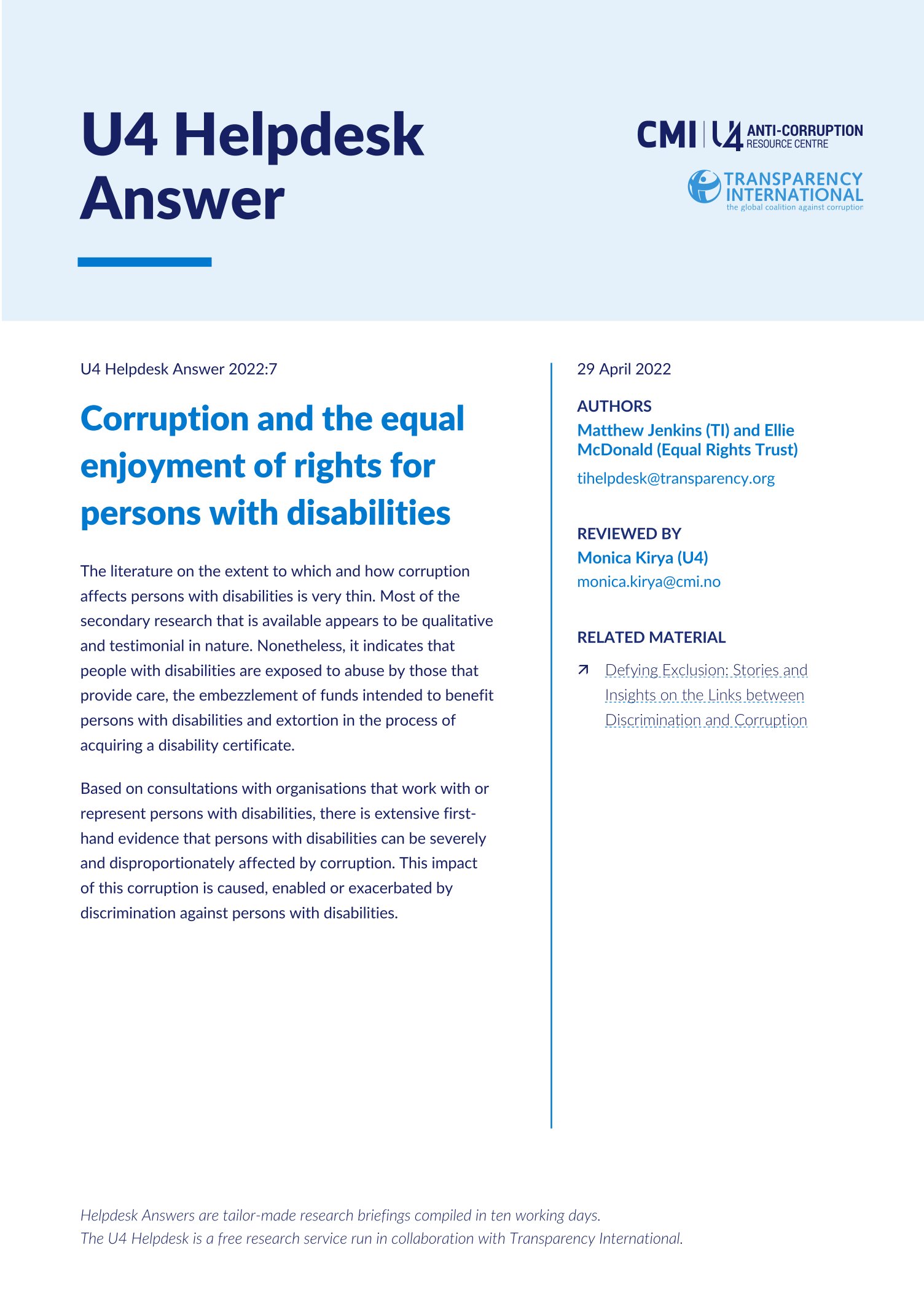Main points
- Persons with disabilities can be exposed to corruption in a number of ways, including in the context of care provision, the embezzlement of funds intended to benefit persons with disabilities and extortion in the process of acquiring a disability certificate.
- Based on consultations with organisations of persons with disabilities, there is sufficient evidence to suggest that more broadly, discriminatory corruption affects persons with disabilities in four main ways.
- First, discrimination renders persons with disabilities more exposed to corrupt abuses of power. Second, corruption can take forms that are intrinsically discriminatory towards persons with disabilities. Third, discrimination results in the effects of corruption being disproportionately borne by persons with disabilities. Fourth, discrimination raises barriers to prevent victims of corruption from seeking justice, while corruption can inhibit efforts to investigate and overcome discrimination.
- Certain characteristics can make some persons with disabilities more exposed to corruption than others. Those include intellectual disabilities and psychosocial disabilities, while children, older persons and women with disabilities may experience more severe forms of discriminatory corruption.
- This intersection between disability status and other grounds should not be overlooked when seeking to sensitise anti-corruption programming to disability perspectives. There is a value and a need for anti-corruption programmes to take a comprehensive, holistic and intersectional approach in their design and delivery.
